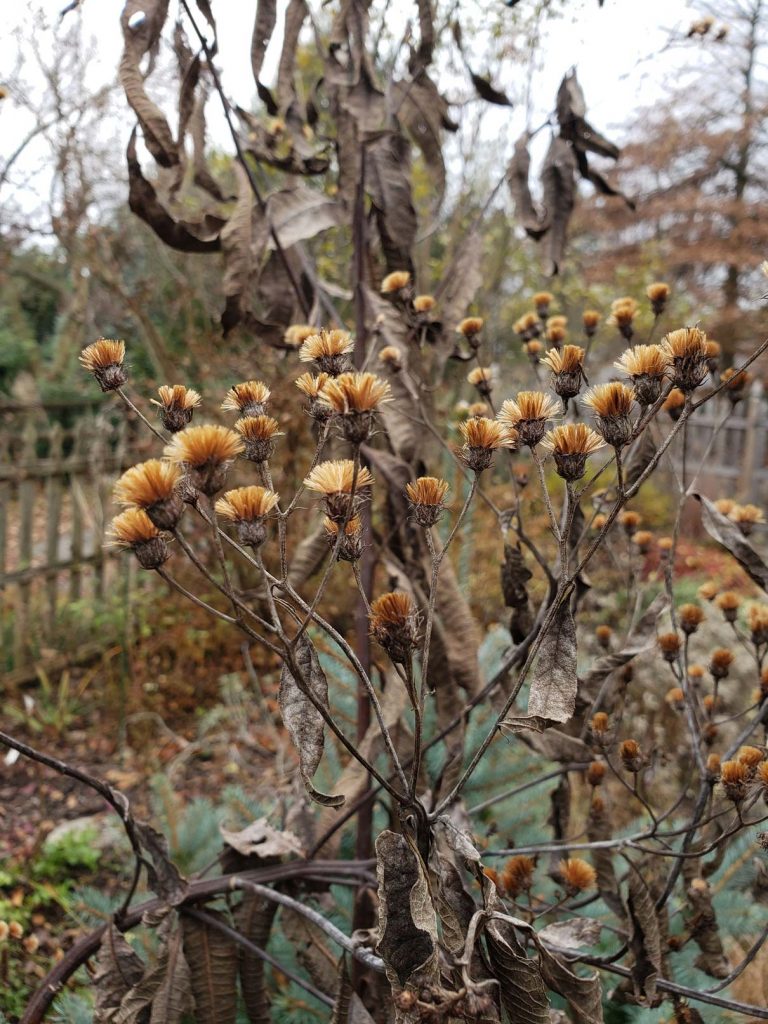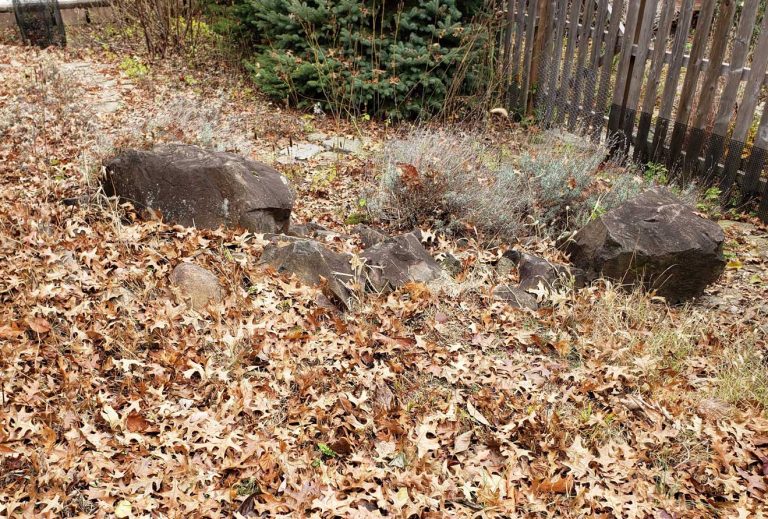Imagine July without the magic of fireflies glowing at night. What about the bees, butterflies, and other insects that add so much to our gardens? It is not enough to have gorgeous flowers if this colorful display doesn’t feed or provide habitat for the many small creatures that inhabit natural areas.
Well, in order to help these and other invertebrates continue to visit our gardens, gardeners need to end the habit of cleaning up their gardens during the fall and early spring. Bagging leaves and cutting back stems kills many of the life forms we enjoy so much during the summer months. This is because butterflies and moths spend the winter in either the egg, caterpillar, pupa and even adult stage of their life cycle hiding in leaf litter and what many consider plant debris.
However, throw out the leaves and you are exterminating the butterfly life cycle. In addition, some bees spend the cold months in the top inch or two of soil and a layer of leaves helps protect and insulate them during this time. Our spectacular fireflies only live about two weeks in the adult stage we enjoy so much brightening our hot summer nights but actually spend as much as two years as larva crawling in the top few inches of soil! They, too, enjoy the protection and hiding places offered by a blanket of leaves. Another benefit is that the leaves nature is providing are free mulch that will break down and improve the soil by adding nutrients.
According to numerous studies, our planet is in the midst of declining insect populations. Although we could all do with fewer mosquitos, the problem is we are losing bees and other pollinators essential to human survival. The keys to maintaining their populations include planting the native plants they utilize for food, avoiding insecticides, and allowing leaves and plants to stand throughout the winter. In addition to hiding in leaves, bees and other insects also burrow into plant stems and overwinter in these.
If you are concerned that leaves will damage your lawn, note that a thin layer of leaves is actually beneficial because it decays and provides nutrients. These leaves can also mulch your garden beds and help improve the soil and provide nutrients just as wood mulch would. If you must remove leaves, instead of bagging and discarding them, please consider raking them into a pile somewhere less visible on your property where the insects they house can continue their life cycle.
As gardeners, we need to reconsider our aesthetic preferences. Is a garden of bare earth or grass really any more attractive or interesting than one of architecturally interesting plants whose seeds help feed the birds?
Humans have a tendency to act in silly ways and spend time and money to ‘improve’ the garden when nature does so much of it for free. Why spend money on fall cleanup and leaf removal only to buy fertilizer and mulch later on? Why cut down plants whose seeds naturally feed birds and then buy birdseed for birdfeeders? By NOT cleaning up the garden, consider the fun you will have with the extra time available for browsing garden catalogs! As you spend time in nature over the next few months, take a moment to notice the life that might be hiding and surviving under a cozy blanket of leaves in your now more eco-friendly garden.
For more information on native plants, fireflies, and preparing the garden for winter, please visit Native Plant Channel on YouTube and Facebook.


